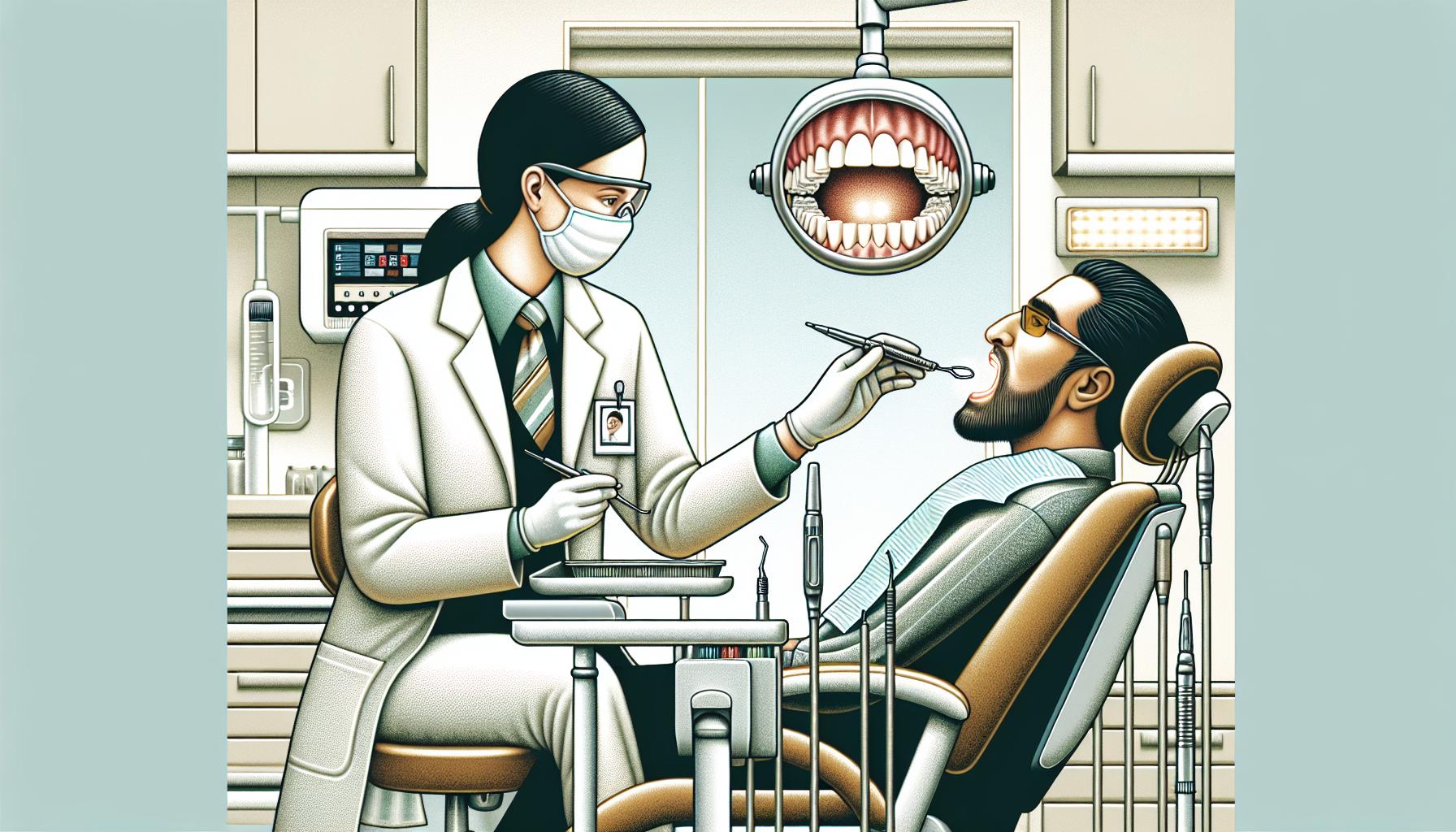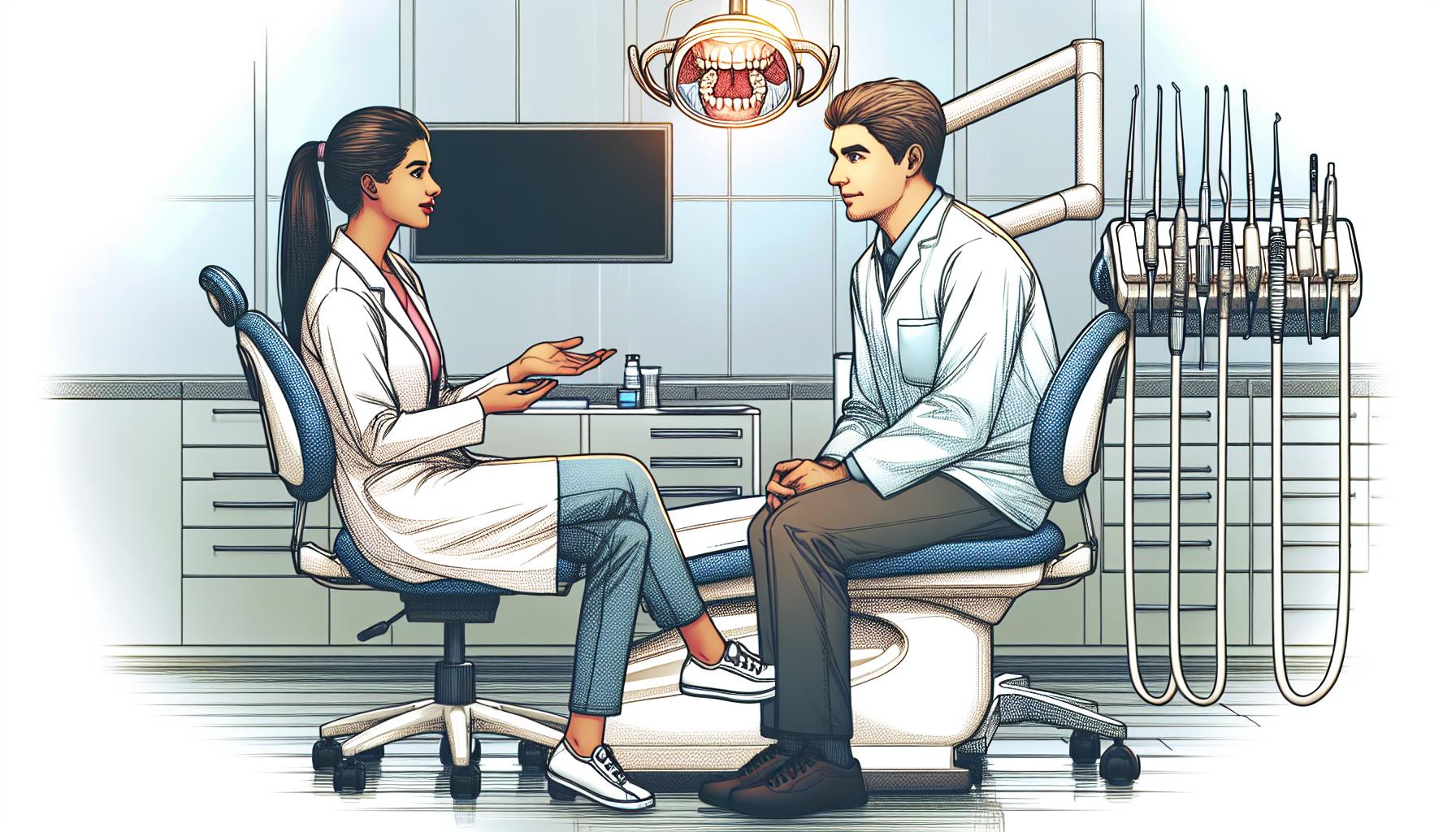Ever wondered if your dentist can tell if you vape? You might think you’re keeping it under wraps, but dental professionals have a knack for spotting the signs. Vaping might seem less harmful than smoking, but it leaves distinct traces in your mouth that a trained eye can easily detect.
From unusual stains on your teeth to inflammation in your gums, these subtle indicators don’t lie. Dentists are well-versed in identifying these signs, which can lead to a conversation about your vaping habits and its impact on your oral health. Curious to know how they do it? Let’s dive into the telltale signs that give away your vaping secret.
Signs and Symptoms Dentists Notice
Oral Tissue Changes
Dentists observe changes in oral tissues to detect vaping. Vaping can cause tissues to become inflamed and irritated. This inflammation often appears as red or swollen areas in the mouth. Chronic irritation from vaping might lead to white patches, known as leukoplakia. These tissue changes can alert a dentist to possible vaping habits.
Gum Issues
Dentists often notice gum issues in patients who vape. Vaping reduces blood flow to the gums, contributing to gum recession. Receding gums expose the root of the teeth, making them sensitive. Inflammation and increased pockets around the teeth might also be evident. These signs indicate gum disease, which can progress rapidly in individuals who vape.
Unusual Dryness in the Mouth
Dentists find unusual dryness in the mouth when examining someone who vapes. Vaping can reduce saliva production, leading to dry mouth, also known as xerostomia. Lack of saliva affects the mouth’s ability to combat bacteria, increasing the risk of cavities and bad breath. Dentists check for signs of dryness during routine exams, as it’s a common indicator of vaping.
Diagnostic Tools Used in Dentistry
Oral Examination Techniques
Dentists use various oral examination techniques to identify vaping habits. Visual inspections highlight issues like gum inflammation, tooth stains, and unusual oral tissue changes. Probing and periodontal probing help detect gum recession and pockets, indicating periodontal disease. If they spot leukoplakia, a condition involving white patches in the mouth, this can also point to vaping-related complications.
Advances in Saliva Testing
Advances in saliva testing offer more precise diagnostics for identifying vaping. Testing can detect nicotine and its metabolites, helping to confirm if a patient vapes. Saliva tests measure specific biomarkers like cotinine, providing accurate evidence of recent nicotine exposure. These technological advancements enhance dentists’ ability to link oral health issues with vaping habits effectively.
Impact of Vaping on Oral Health

Short-Term Effects
Vaping impacts oral health in several immediate ways. Users often experience dry mouth (xerostomia) because vaping reduces saliva production. Dry mouth can lead to discomfort, difficulty swallowing, and an increased risk of tooth decay. Vaping can also cause bad breath due to accumulated bacterial growth.
Gum inflammation is another common short-term effect. Dentists observe swelling, redness, and tenderness, indicating that vaping irritates gum tissues. Additionally, increased oral ulcers and sores occur among regular vapers, disrupting daily comfort and eating.
Long-Term Consequences
Over extended periods, vaping leads to more severe oral health issues. Gum recession is frequent among long-term vapers, exacerbating tooth sensitivity and exposing roots to potential decay. This condition weakens overall oral structure and increases the risk of tooth loss.
Persistent vaping causes leukoplakia, characterized by white patches on mucous membranes inside the mouth. These patches can develop into more severe conditions, such as oral cancer, if left untreated. A study published in the journal Oral Surgery, Oral Medicine, Oral Pathology, Oral Radiology shows a correlation between vaping and an elevated cancer risk over time.
Using nicotine-containing e-liquids contributes to prolonged teeth stains and discoloration, making them harder to remove than conventional staining. As the staining deepens, aesthetic concerns increase, necessitating professional dental cleanings and treatments more frequently.
Finally, chronic dry mouth, exacerbated by long-term vaping, significantly increases susceptibility to cavities and infections. Reduced saliva flow means less natural protection against bacterial proliferation, leading to a heightened decay risk and periodontal diseases.
This section seamlessly continues from discussing how dentists detect vaping, analyzing the immediate and prolonged impacts of vaping on oral health. Through clear articulation, the provided explanations align with dentists’ observations, findings, and studies on vaping’s adverse effects on oral health.
Tips on Discussing Vaping with Your Dentist

Being Honest About Your Habits
Discussing vaping with your dentist requires honesty. If you’re upfront about your vaping habits, dentists can provide better care. Mention the frequency and duration of your vaping sessions. Share details about any flavors or brands you prefer. By providing comprehensive information, you enable your dentist to tailor their advice and treatments to your specific needs.
Understanding the Importance of Full Disclosure
Full disclosure is crucial for effective dental care. If your dentist knows you’re vaping, they can monitor potential issues more closely. Transparency helps in spotting early signs of gum disease or oral lesions. Concealing information may lead to missed diagnoses and ineffective treatments. A transparent conversation ensures that you receive the most accurate assessments and recommendations.
Conclusion
Being upfront with your dentist about your vaping habits is crucial. This transparency allows for more personalized care and timely detection of potential oral health issues. By fostering open communication, you pave the way for better oral health outcomes and effective treatments. So, don’t hesitate to discuss your vaping habits during your dental visits. Your smile will thank you for it.
Frequently Asked Questions
Can dentists detect if you vape?
Yes, dentists can often detect if you vape by observing signs like teeth stains and gum inflammation.
Why should I tell my dentist if I vape?
Being honest with your dentist about vaping allows them to offer tailored care, monitor potential oral health issues closely, and provide accurate assessments and recommendations.
What are the oral health risks associated with vaping?
Vaping can lead to teeth stains, gum inflammation, and other oral health issues like gum disease or oral lesions.
How should I discuss vaping with my dentist?
Approach the conversation with honesty and full disclosure about your vaping habits. This enables your dentist to better understand your oral health needs and provide the most effective care.
Can honest communication with my dentist improve my oral health?
Yes, open communication helps dentists detect early signs of gum disease or oral lesions, leading to more effective treatments and better oral health outcomes.
